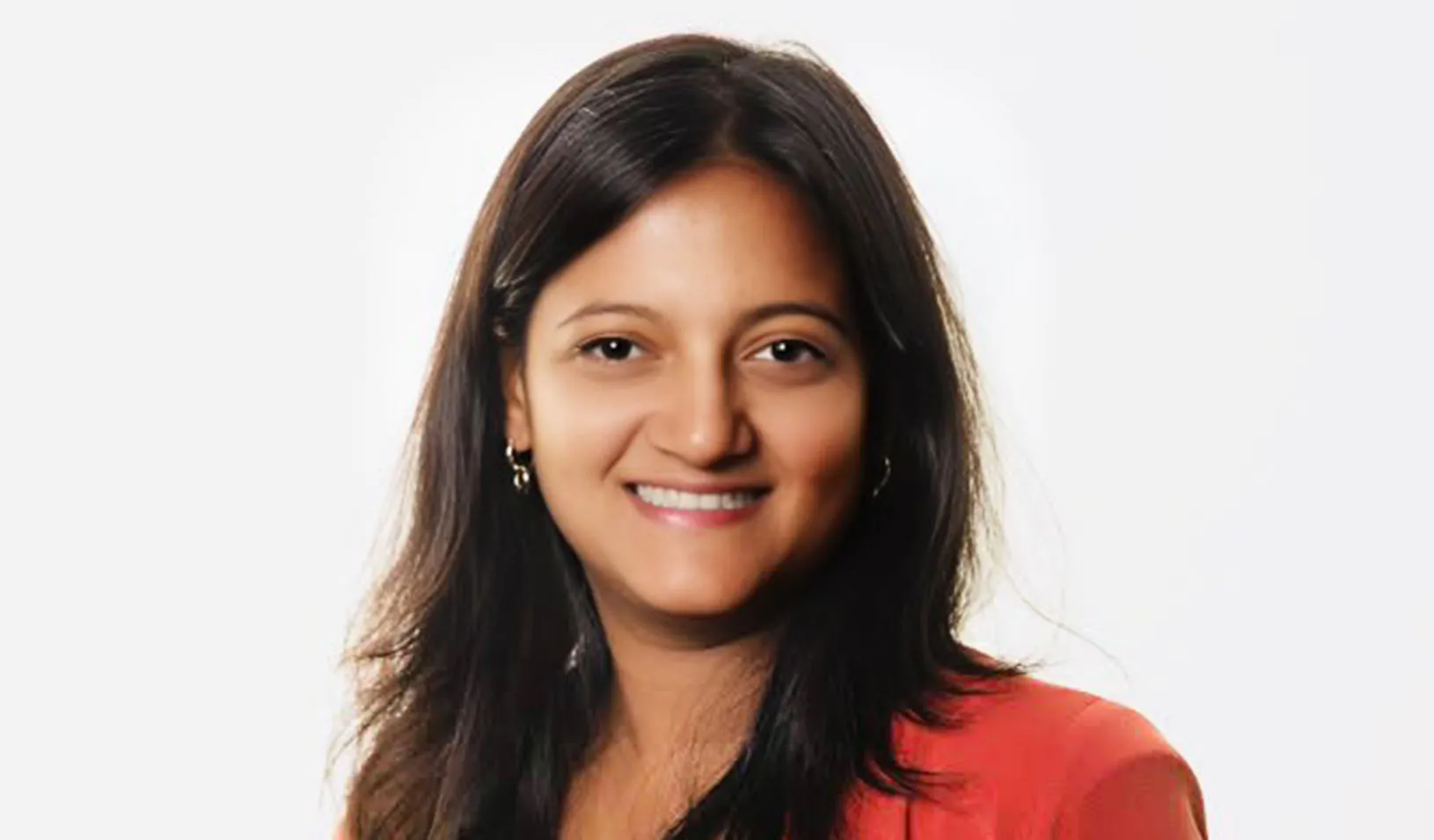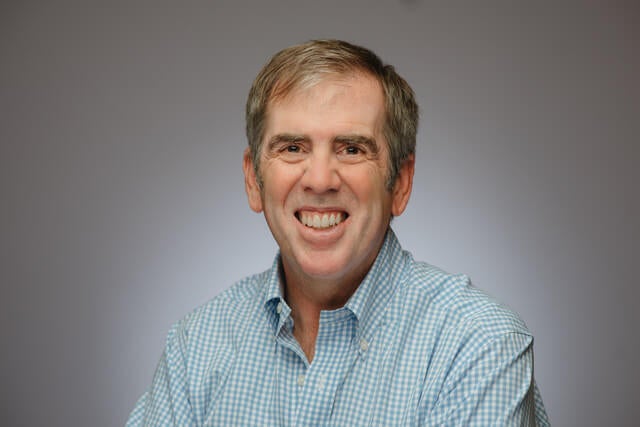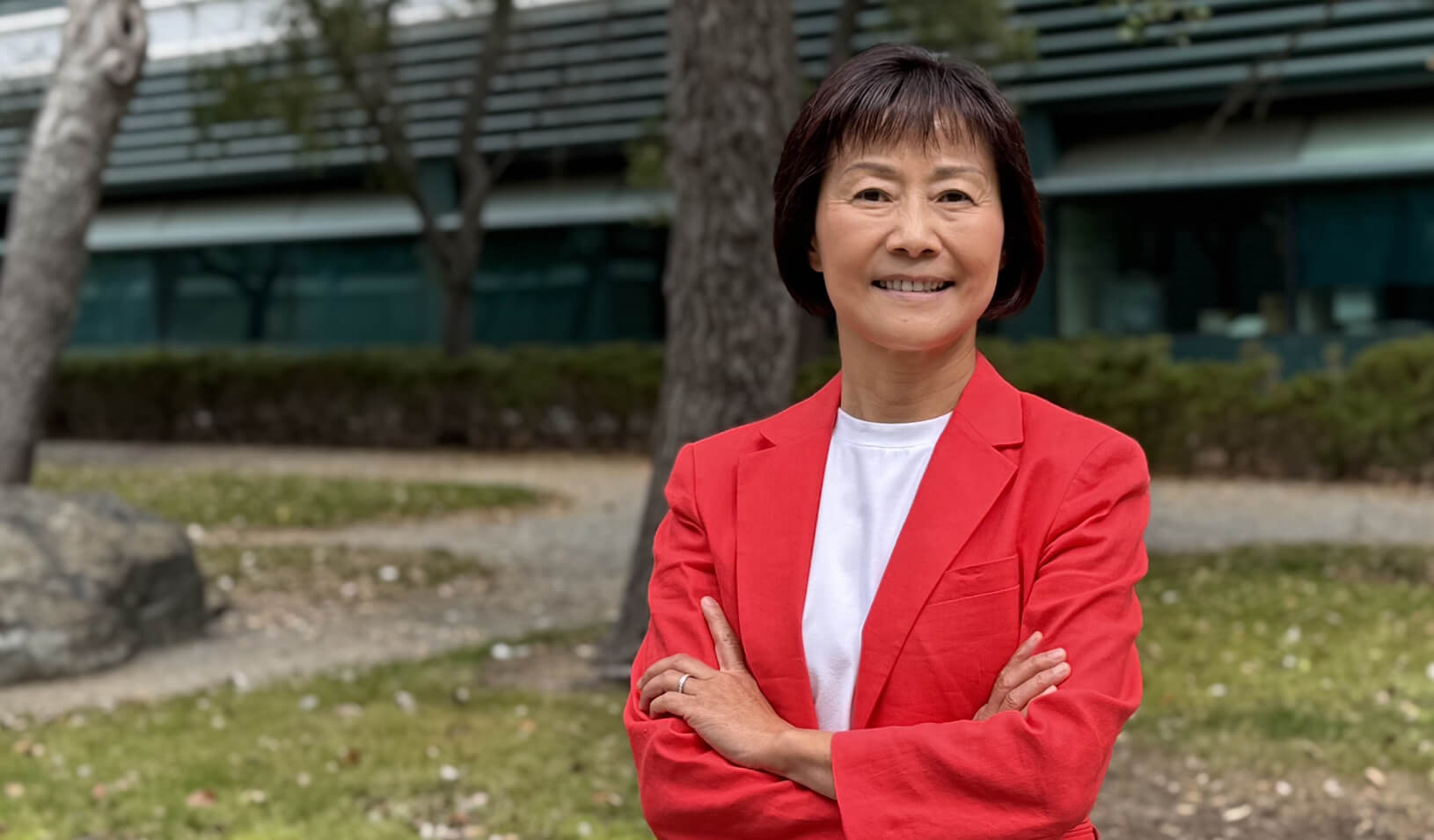A Manager Gains Confidence and Inspiration for Her Day Job and Her “Gay” Job
A conversation with Deepthi Rao, a Meta product manager and global product advocacy lead for Pride@Facebook and participant in the LGBTQ Executive Leadership program.
May 23, 2023

Deepthi Rao is a product manager in one area of her work for Meta and an advocate for equality and representation for the LGBTQ community in the other. Eager to sharpen skills that will help her to develop further in both roles, Rao attended the LGBTQ Executive Leadership Program where participants build leadership, management, and advocacy skills simultaneously.
Prior to coming to Stanford, you had served in some prominent LGBTQ leadership roles, including as a fellow at a White House LGBTQ tech summit and at Pride@Facebook. What skills and traits were you looking to enhance?
I wanted to get out of this imposter syndrome I felt. I did not want to be trapped thinking whether I was “good enough” to be talking about LGBTQ issues to the CMO or the VPs and representing product advocacy for all of Facebook. I also wanted to hone my management skills in the product management space, where I was working to become a leader. The Stanford program felt right. It was designed to help me be my authentic self, but it was a management program at its core. It wasn’t about how to be an LGBTQ person; it was teaching me to be my authentic self and be a leader.
Was there a specific session or element that helped you to address those imposter feelings and embrace your true self and potential?
It was the whole experience. Being in the company of other LGBTQ leaders and seeing their true selves at work, I think I also gained courage and drive.
I learned to reframe my thinking from, “Why am I here?” to, “Now that I am here, let me see how much of an impact can I make.” The combination of theoretical lessons from professors who were very good at what they did and being with people who lived their values day in and day out helped me.
The program teaches management skills such as negotiation, storytelling, and design thinking through the lens of LGBTQ issues. What impact did that have on you?
We did a session on storytelling where each of us told our coming out stories… how we mustered up the courage to do it and more. I really understood how significant coming out is to everyone. Everybody remembers how they came out to their family or friends. The exercise helped solidify this idea [of adding “Came Out” as a “life event” feature that users can designate on their Facebook timelines]. I took it back to my leadership and everyone was super excited about it. We launched it within a short span in time for National Coming Out Day that October.
You also drew inspiration for another Facebook feature from a design thinking session which encouraged participants to design products that were personally important to them. Can you share more with us about that?
A lot of us came up with different products… one person came up with an app that identified microaggressions in conversation. I came up with an LGBTQ business map. Previously there had been no way for a business to identify as a diverse-owned business on Facebook. We pitched changing this and our management loved the idea. Now if you go on Facebook, you can see that a business is diverse-owned, such as woman-owned or LGBTQ-owned. That came out of the design thinking exercise.
How did this program help you lead when you returned to work?
I became more and more open. Once we launched the Coming Out feature, I started speaking more at Facebook Pride events. I spoke on a panel attended by employees from all over the world. Afterward, several people from Asia approached me to say, “We weren’t out to our families or out at work, but seeing someone that looks like us gives us hope.” And they went back and became more active in LGBTQ groups in their countries. The Stanford program not only helped me to become a better product manager in my day job, but it also helped me become a better advocate for the community in my “gay” job. It helped me be better at both.
How did you feel about networking with other people in the program?
It was amazing. I wouldn’t have met all these people from so many different walks of life if it were not for this program. Having a shared sense of journey around coming out and a shared sense of community really helped us to bond better with each other. And since the program, we’ve continued to help each other through our journeys in multiple ways.


